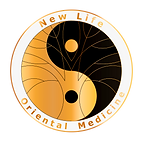Traditional Chinese Medicine


As a traditional Chinese doctor, let me delve into the fascinating world of Chinese internal medicine and provide insights into its principles, treatments, and patient perspectives.
Concept of Qi (Life Force):
Qi (pronounced “chee”) is the vital life force that flows through our bodies. According to Chinese medicine, any imbalance in Qi can lead to disease and illness. This imbalance often results from alterations in the yin and yang. Yin represents the receptive, cool, and nourishing aspects, while yang embodies the active, warm, and dynamic qualities.
Holistic View of Health:
Traditional Chinese medicine (TCM) views humans as interconnected with nature and subject to its forces. We are microcosms of the larger universe. Balance between yin and yang is crucial. TCM aims to restore this balance by addressing both internal and external factors.
Treatment Modalities:
-
Acupuncture: Inserting fine needles into specific points (acupoints) along meridians (energy channels) to regulate Qi flow.
-
Moxibustion: Burning herbal leaves near the body to stimulate acupoints.
-
Cupping: Using warmed glass jars to create suction on specific points.
-
Massage: Manipulating soft tissues to enhance circulation and balance.
-
Herbal Remedies: Using specific herbs to restore harmony.
-
Movement Practices: Tai chi and qigong promote balance and well-being.
Expectations from Patients:
-
Individualized Treatment: TCM tailors treatments to each person’s unique constitution and condition.
-
Holistic Approach: Patients should understand that TCM considers physical, emotional, and environmental factors.
-
Patience: Healing may take time, especially for chronic conditions.
-
Complementary Therapy: TCM can complement conventional medicine but should not replace it entirely.
-
Communication: Patients should openly discuss their symptoms, lifestyle, and any Western medications they are taking.
-
Certified Practitioners: Seek care from accredited TCM practitioners who understand the nuances of this ancient system.
Remember, TCM emphasizes harmony, balance, and the interconnectedness of mind, body, and spirit. It’s a profound approach to health and well-being that has stood the test of time.
For more detailed information, you can explore resources like the Johns Hopkins Medicine page on Chinese Medicine.
Traditional Chinese Medicine (TCM) offers a holistic approach to health, addressing both physical and emotional well-being. While TCM has been practiced for thousands of years, it’s essential to recognize that its effectiveness varies based on individual responses and the specific condition. Here are some conditions that TCM is known to be helpful for:
-
Obesity: TCM considers obesity as an imbalance in spleen and stomach Qi leading to phlegm accumulation, and aims to restore harmony through acupuncture, herbal remedies, and dietary adjustments.
-
Diabetes and Its Complications: TCM can complement conventional diabetes management. It focuses on regulating blood sugar levels, improving circulation, and preventing complications like retinopathy (damage to the retina).
-
High Cholesterol: Herbal formulations and dietary modifications are used to address high cholesterol levels.
-
Depression & Anxiety: TCM recognizes the mind-body connection and may offer acupuncture, herbal treatments, and lifestyle adjustments to support mental health.
-
Arthritis: TCM aims to reduce inflammation, manage pain, and improve joint function in arthritis patients.
-
Pain management: Acupuncture and herbal therapies are commonly used to alleviate chronic or acute pain, especially back pain.
-
Male and Female Fertility Disorders: TCM considers fertility as a balance issue and uses acupuncture, herbs, and lifestyle changes to enhance reproductive health.
Remember that TCM emphasizes individualized treatment, addressing the root cause, and promoting balance. Consult a qualified TCM practitioner to explore personalized approaches for your specific health concerns.
For more information, you can refer to the National Center for Complementary and Integrative Health’s page on Traditional Chinese Medicine.
